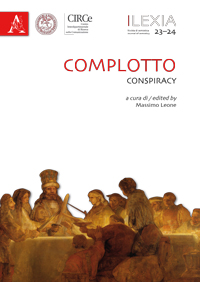Estratto da
LEXIA. RIVISTA DI SEMIOTICA
Complotto
Fondamentalismo, anomia, complotto. La semiotica di Umberto Eco contro l’irragionevolezza interpretativa
LEXIA. RIVISTA DI SEMIOTICA
Complotto
Fondamentalismo, anomia, complotto. La semiotica di Umberto Eco contro l’irragionevolezza interpretativa

If one had to summarize the core of Umberto Eco’s philosophical inquiry in one sentence, or slogan, it would be reasonable to argue that most of his work has been devoted to investigate the limits ofinterpretation. This inquiry entails two dimensions; on the one hand, a theoretical line: showing that signs, texts, discourse, and culture in general are not always open to the proliferation of meaning, but produce signification in ways that are regulated by societies through established patterns. These codes of interpretation can be continuously negotiated and renegotiated, but nevertheless hold a central place in the processes through which meaning is created, shared, and circulated in societies. The second dimension, a moral one, intertwines with the first. Not only do patterns of interpretation exist; they must also hold for social communication to be possible. A society that does not share any codes, and does not impose any limits to interpretation, is a disintegrating society, where human beings are progressively deprived of what defines and enables them as social and political animals, that is, language.
| pagine: | 55-67 |
| DOI: | 10.4399/97888548993154 |
| data pubblicazione: | Giugno 2016 |
| editore: | Aracne |








